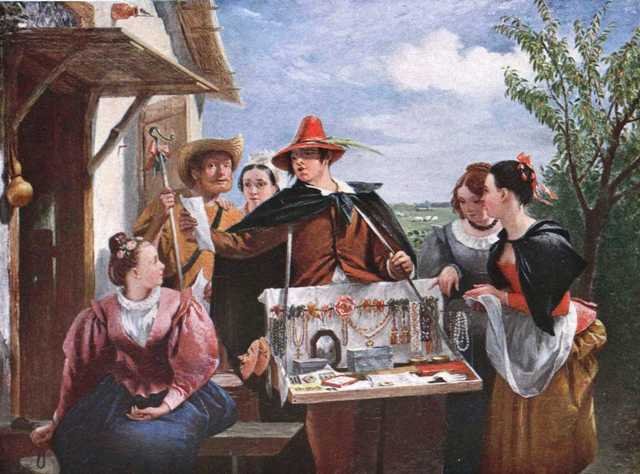The number of musicians in Shakespeare’s plays is vast: almost every play includes some form of music. The singers are easier to determine than the instrumental musicians, as there are usually (though not always) directions for who, and how many people, should sing a song – the lyrics are also often included. Shakespeare’s singers are usually servants or professional musicians. Though singing was a respectable pursuit in private, it was not deemed appropriate for an individual of decent social standing to sing in public. There are some exceptions to this, such as Ophelia’s singing. When Balthasar (a lord) sings “Sigh No More, Ladies” in Much Ado About Nothing, he only does so after protesting multiple times that he has little talent, and he sings reluctantly when persuaded by his peers.

There are a few professional musicians in the play who stand out, as they have multiple songs, and much is made of their talents. The two with the greatest number of songs are Autolycus, in The Winter’s Tale, and Feste, in Twelfth Night, who both sing five songs.
Autolycus is a ballad-seller by profession. In Shakespeare’s time, ballad-sellers were a popular sight in both the town and the countryside, usually found on street corners, or at fairs and markets. They would sell songs printed on “broadside” sheets of papers – commonly known as “broadside ballads”. The ballad-singer would carry a stock of the most popular and recent songs with him, and would sing the songs himself to advertise them to the public. A ballad-seller like Autolycus would be singing almost constantly on the streets, and it is not surprising that Shakespeare has him sing a number of rustic folk songs, many of which sound improvised and autobiographical.
Autolycus' songs are:
1. When Daffodils Begin to Peer
2. Jog On, Jog On, the Foot-Path Way
3. Lawn as White as Driven Snow
4. Will You Buy Any Tape?
5. An unknown song in three parts with Mopsa and Dorcas

Feste is a fool who sings and plays the pipe and tabour. He is employed by the lady Olivia to entertain her household with witty comments and songs, but he also travels to the duke Orsino’s court to sing there when requested. This was typical of professional musicians from Shakespeare’s time, who would often be called upon to play at different venues, including the homes of the gentry, events including weddings – and possibly to provide theatrical music in the playhouses. The musicians would be ready to play a range of music. When asked to sing by Sir Toby Belch and sir Andrew Aguecheek, Feste asks them if they would rather hear a song about love or “good life”, to suit their mood – and he sings a mournful song for the melancholy Orsino on request.
Feste sings the following songs (click the titles to listen):
1. Hold Thy Peace (performed by "Shakespeare Aloud!")
2. O Mistress Mine (performed by Forbes Masson, RSC)
3. Come Away Death (Forbes Masson, RSC)
4. I Am Gone, Sir (Forbes Masson, RSC)
5. The Wind and the Rain (Forbes Masson, RSC)

It is thought that Feste’s songs may have been originally meant for Viola, who comes to Orsino’s court disguised as a man, in order to sing “in many sorts of music”. However, as Viola apparently doesn’t sing at all throughout the play, there is a theory that the young apprentice boy who would have been playing Viola (teenage boys always played the women's roles) may have had to give up his songs as his voice had broken when he was supposed to perform.
Nevertheless, Feste’s role as fool would have fitted well with the profession of itinerant musician. Both Feste and Autolycus’ roles were familiar to members of Shakespeare’s audience as professional merrymakers, and Shakespeare could easily use them to add music to liven up a scene.
